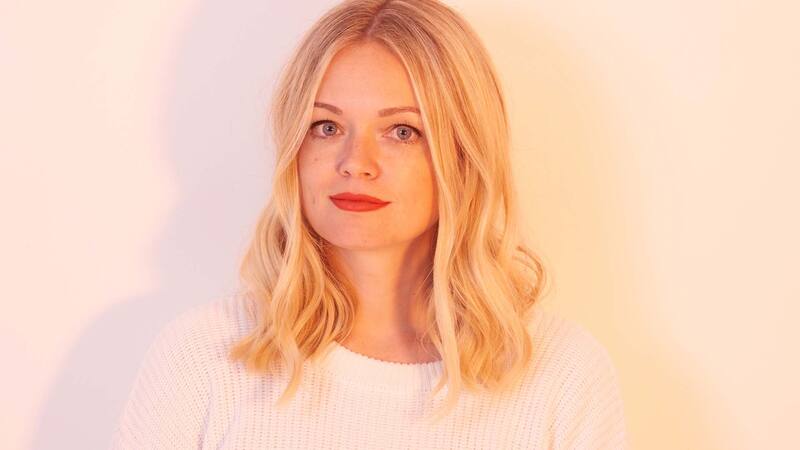You are viewing your 1 free article this month. Login to read more articles.
The Word Smith
The spark for Ali Smith's 2004 novel The Accidental, shortlisted for both the Orange Prize and the Man Booker, came to the author while she was asleep—she dreamed the first two pages, in sentences, woke up and wrote them down. "I wish all novels came in dreams" she says, slightly ruefully, when we meet to talk about her new novel There but for the. . . (£16.99, Hamish Hamilton), which began, she explains, with the image of a man alone in a room with no way out.
There but for the. . . has a mystery at its heart. In the middle of an ordinary dinner party in Greenwich, a guest—Miles—goes upstairs and inexplicably locks himself in a spare bedroom, refusing to come out. Smith originally thought There but for the . . . might be her first "single-voiced novel", but "it would not do it, it refused to do that and wanted to come in the voices of people who were on the outside". So the reader does not hear from Miles directly, but from those around him: Anna, who met Miles once 30 years earlier during a trip around Europe; Mark, who met Miles by chance at the theatre and invited him to the dinner party; and the irrepressible Brooke Bayoude, the young daughter of two other dinner party guests.
The novel, Smith says, has a political root: "The root of it is about detainment and/or about who lives where, and who gets to live where, and who decides who lives where, and how we live all the time with the question of otherness or other people." In the novel Anna has just left her job, which required her to write the life stories of asylum seekers to fit the space on a form: "It's a job of extreme expertise in writing to be able to fit [the person's life story] in a very small space. What does that do to a life, to fit it into a very, very small space?"
Smith's exuberant delight in language and wordplay runs through the novel, most evidently through the character of Brooke, a precociously bright nine-year-old. "Puns are particularly exciting" she says, "if you share a pun joke with somebody, you've shared a joke on so many levels immediately."
"Words are so simple and so complicated at once, and really I suppose to some extent centrally that's what this novel is about; which is the unsayable up against what is said—how much words give us, if we let them."
The novel is set in Greenwich, a place Smith came to know well when she spent time there working with a secondary school which was adapting her novel Hotel World for the stage. Greenwich is also symbolic—"the notion of time, the notion of where we are in the world and who decides what the centre of things is, where the line runs."
Smith writes in the attic room of her house in Cambridge, in the afternoons "and evenings if I'm working well". She edits as she goes along, line by line "so the thing you write then produces the next sentence, which then produces the next sentence. By the time I finish a first draft it will be close to what I want it to be, it won't be finished but it will have taken me somewhere where it wanted to go."
Born in Inverness, Smith first moved to Cambridge as a postgraduate student in the 1980s after a BA in English Literature and then an MLitt at Aberdeen University. A career in academia seemed likely but she found a lecturing post at Strathclyde University didn't suit her. Having started writing what she describes as "bad poetry" while at Aberdeen, this nevertheless brought her to the attention of former agent Xandra Hardie who expressed an interest in seeing any fiction. Smith's first collection of short stories was published by Virago in 1995.
Since then Smith has always alternated novels with short-story collections and is mystified that the short-story form is not given the same status as the novel by publishers or retailers. Something like a short-story collection category within the Costa Book Awards would allow bookshops to showcase the form, and obtain more coverage she suggests.
I ask how she has seen publishing change since the beginning of her career. "I don't know that it's anywhere near as easy to take a risk these days. I think nowadays nobody would have taken that risk with me." As a writer Smith undoubtedly takes risks; she's endlessly inventive and original. Next, she wants to see if there's a form which unites both the story and novel, "a set of discrete stories which really also make a longer form, you know, so the idea of the collection as form in itself."












